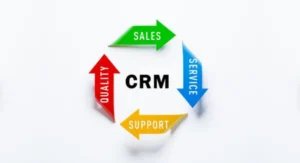Using Rental Property Depreciation for Your Tax Advantage
By TOI Staff
February 26, 2023
Update on : February 26, 2023

As a landlord, managing your taxes can be a significant challenge. Using rental property depreciation is one effective way to reduce your tax burden and increase your profits.
Depreciation is an accounting technique that lets you gradually recoup your property’s expense by deducting a portion of its worth annually as it ages and loses its value.
This method enables you to write off a portion of your property’s value each year as it ages and loses its value, allowing you to recover the cost of the property over time.
Taking advantage of rental property depreciation can lower your taxable income, improve your cash flow, and accumulate substantial tax savings over time.
This article will provide a comprehensive overview of rental property depreciation, explaining what it is, how it works, and how you can use it to your tax advantage.
What is Rental Property Depreciation?
Depreciation is a financial tool that allows you to retrieve the investment in your property over a period. This accounting method allows you to regain a portion of the cost you incurred in acquiring the property as it depreciates with time.
In other words, you can write off a portion of your property’s value each year as it ages and loses value. The Internal Revenue Service (IRS) recognizes the decline in rental property value over time and allows landlords to take a tax deduction for this depreciation.
But how does rental property depreciation work, we will go through that quickly in the next section.
How Rental Property Depreciation Works
The IRS has established rules and guidelines for calculating rental property depreciation. Here’s a quick overview of the process:
Determine the property’s cost basis: The cost basis is the property’s original purchase price plus any improvements or additions you make.
Calculate the depreciation rate: The depreciation rate is determined by the IRS and is based on the type of property you own and its expected useful life.
Determine the annual depreciation amount: To calculate the annual depreciation amount, you’ll multiply the cost basis by the depreciation rate.
The Benefits of Rental Property Depreciation
There are several benefits to using rental property depreciation to your tax advantage, including:
Lower taxable income: By claiming depreciation as a tax deduction, you can reduce your taxable income, resulting in lower taxes owed.
Improved cash flow: With lower taxable income, you may have more cash each year to reinvest in your rental properties or use for other purposes.
Long-term savings: Over time, the accumulated depreciation deductions can add to substantial tax savings, especially if you own several rental properties.
Simplified record-keeping: Keeping track of depreciation is relatively straightforward, and the calculations are done for you by the IRS.
How to Maximize Your Rental Property Depreciation Benefits
To maximize the benefits of rental property depreciation, there are a few things you can do:
Keep accurate records: It’s essential to keep accurate records of your rental property expenses, including any improvements or additions you make to the property. This will help you determine the correct cost basis for calculating depreciation deductions.
Stay up-to-date on tax laws: Tax laws regarding rental property depreciation can change, so it’s essential to stay informed and make any necessary adjustments to your tax strategy.
Consider hiring a tax professional: When you own several rental properties or have complex tax requirements, it’s recommended to seek the assistance of a tax expert to guide you through the maze of depreciation laws and regulations.
This way, you can make the most of the depreciation benefits while staying compliant with tax laws.
So there you go!
Rental property depreciation is a valuable tax strategy for landlords looking to minimize their tax burden and maximize their profits.
By understanding how it works and taking steps to maximize your benefits, you can use depreciation to your advantage and achieve long-term financial success as a landlord.
















